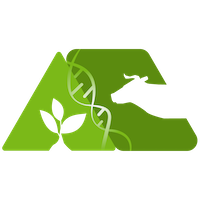Impact of minimum tillage, oat straw management, and chicken manure on soil water content, runoff, erosion and tomato production
DOI:
https://doi.org/10.31285/AGRO.16.670Abstract
Sustainability of vegetable farms in south Uruguay depends on development of farming systems that can arrest soil deterioration. In a context where major constraints exist for irrigation, and rainfall is highly spatial and temporally variable, one of the main causes of yield reduction in deteriorated soils might be the reduction in soil moisture supply capacity. We established an experiment to determine the effect of different tillage systems on soil water content, runoff and erosion at high rainfall intensity, and on processing tomato (Solanum esculentum) yield. We report the results of the first year of the experiment set up in march 2010 at a finesilty Pachic Argiudoll, with four treatments: Minimum Tillage with Cover Crop, planting oat (Avena byzantina) in basins and leaving it as mulch (MTCC); Conventional tillage with Green manure, same than previous treatment but oat biomass is incorporated to the soil through conventional tillage (CTGM); Conventional Tillage with Chicken Manure (CTChM); and Conventional Tillage (CT). Except CT, all other treatments incorporated chicken litter (7.0 Mg ha-1). Soil moisture was measured at 20 cm depth with time domain reflectrometry and at 100 cm depth with a neutron probe. Runoff and sediment loss were measured with a rainfall simulator at 6 mm/min rainfall intensity. Soil water content at 20 cm depth was the highest in the MTCC and lowest in CTGM and CTChM, yielding up to 10% more volume water content. Runoff and soil erosion was less at both treatments with oat, MTCC and CTGM. However, crop yield was the lowest at the MTCC, pointing out the need for extra attention to the fertilization scheme, because plants showed symptoms of N deficit at the beginning of the growth period. Minimum tillage with mulching contributed to conserve soil water, and to reduce soil runoff and soil erosion.
Downloads
Downloads
Published
How to Cite
Issue
Section
| Article metrics | |
|---|---|
| Abstract views | |
| Galley vies | |
| PDF Views | |
| HTML views | |
| Other views | |

















